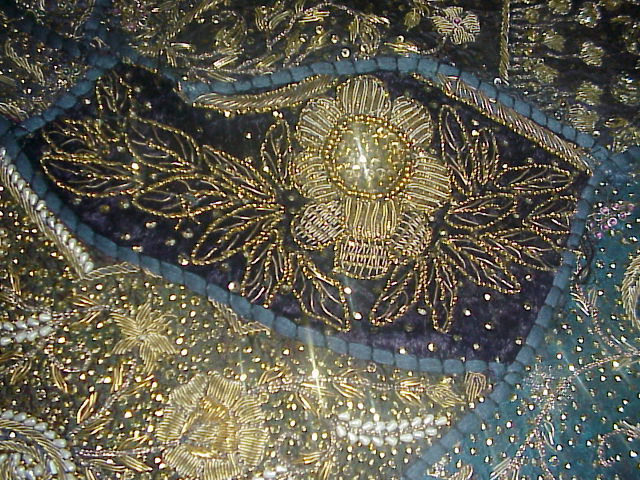===
0710,
11
===

=== |
 |
nāmūs : 'Reputation, fame, renown; esteem, honour, grace, dignity; —disgrace, reproach, shame'. (Platts p.1118)
jeb : 'The opening at the neck and bosom (of a shirt, &c.); the breast-collar (of a garment); the heart; the bosom'. (Platts p.412)
vā-bastah : 'Bound; restrained; —referred back (to); related, connected (with), depending (on)'. (Platts p.1171)
FWP:
SETS
MOTIFS ==BONDAGE; CHAK-E GAREBAN; CLOTHING/NAKEDNESs; MADNESS; SOUND EFFECTS
NAMES
TERMS == AFFINITY; 'DELICACY OF THOUGHT'There are also some enjoyable sound effects, with all the j sounds-- jab , junūñ , jeb , jāñ , and especially the enjoyable zanjīr . The second line feels very flowing-- jāñ and dāmāñ form a little internal rhyme of their own.
And then, why would the lover's 'neck-opening of life' be bound with chains? The intransitive verb bañdhā gives us no clue as to who has done the binding (it might even have been done by the lover himself), or why the binding has been done. As SRF has made clear, nāmūs can have the dual senses of 'honor' and 'disgrace'; moreover, the binding of the neck-opening might be either desirable or undesirable. Thus there are at least four strongly marked possibilities:
=For the 'honor' of madness, it's desirable that the lover has been bound so entirely (since thus his madness is made clear, and he's caused to suffer gallantly for it).
=For the 'honor' of madness, it's undesirable that the lover has been bound so entirely (since he thus can't go running off into the desert and do other appropriate things to manifest his madness and show the honor in which he holds it).
=For the 'disgrace' of madness, it's desirable that the lover has been bound so entirely (since thus he's unable to run around doing even more scandalous and reprehensible things).
=For the 'disgrace' of madness, it's undesirable that the lover has been bound so entirely (since he's been rendered helpless and unable to do anything about his disgrace).
The emphasis on the speaker's being bound from his 'neck-opening' to his 'garment-hem' also makes us aware of his clothing, and of the 'ripping of the collar' that might continue, if vigorously pursued, all the way down to the hem of the garment, so that the whole garment would be torn open and the madman would be left at least semi-naked. (The common--and equally ambivalent-- pair nang-o-nāmūs can't help but come to mind, with its strong evocation of nangā , 'naked'; on all this see G{3,5}.)
One purpose of the binding is surely to prevent the madman from rending his garments. And if it's the 'neck-opening of his life' that's involved, it's quite possible that only the binding is what is preserving his life. Is that a cause of 'honor' or 'shame' to him and to (his) 'madness'? Is it desirable or undesirable? As usual, it's left up to us to decide.
The metaphors are so elaborate and contrived that they get in each other's way. The verse seems to be a victim of its own 'delicacy of thought'.